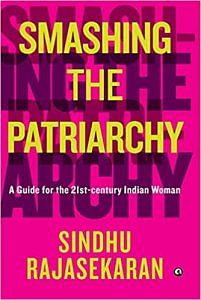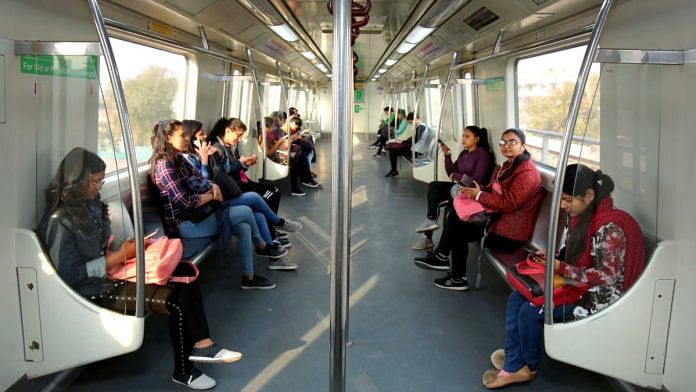Polyamory was a journey of self-discovery for me. It helped me with a lot of issues that I myself have when I’m in an exclusive relationship (my self-worth and sense of identity being very heavily defined by my partner). It was a journey I wanted to share with the world, one that I honestly hoped would help and benefit a lot of people,’ Mumbai-based Arnaz Irani tells me, when I ask her what prompted her to write a candid article about her polyamorous experiences, a topic seldom discussed in India. ‘In the liberal bubble I live in, and among the sort of people I choose to surround myself with, this stuff isn’t really taboo,’ she exclaims. Talking about the inherent contradictions in millennial feminism, where women often compromise on feminist ideology for love, Irani says: ‘I wrote another piece for Arré about being an old-fashioned romantic while also being a feminist, where the thought was essentially about the struggle—between what we’re taught to be and what we want to be. The way millennials are broadening the definition of feminism is good. Choices (in whatever form) should always be above/about more than just sexual politics.’
Young women have recast ideas of love and compatibility in India today. While many still believe in the fairy-tale ending (or beginning), others have self-partnered and refuse to let romantic love define their lives (which isn’t to say they don’t want it). The epiphany that my generation seems to have had about love is that it isn’t as selfless as we were told. As pop poet Rupi Kaur writes: ‘I am learning how to love him by loving myself.’ Because, at the end of the day, love has everything to do with the selfish self. Without that, there is nothing. So, millennial women’s choices with regards to love, dating, and marriage often traverse a path of self-knowledge.
‘I am not against the idea of marriage; it works for some and not for all. But I prefer to stay single,’ says Sana Kazeem, who works with an airline company in Chennai. ‘Despite the fact that I’m not interested in getting married, relatives of mine have brought proposals from other cities. When I simply tell them about my job (which I like very much), my pets, my family, my friends and my freedom, they tell me I don’t have to work because the guy has money, it’s okay to leave my pets (not realizing they’re like my children) because he has pets too. They still think that it’s a woman’s role to sacrifice. And all for what? To have a companion when you’re old. A companion could be a friend or a pet or just anyone, whoever said it has to be a spouse?’
An avid traveller, yoga practitioner, animal welfare enthusiast, needle worker, and maker of crafts, Kazeem says there’s no space for loneliness in her life as she’s busy passionately pursuing her work and hobbies. However, the social pressure to marry is unending. ‘Honestly, Indians will never stop asking questions or judging one’s personal life. People ask me “wouldn’t you like to see your parents happy?” for which I mostly reply that my happiness is of utmost importance and my definition of happiness is different from theirs.’ Kazeem tells me that she has stopped attending family events to avoid being drawn into conversations about her relationship status. ‘People don’t want to know if you’re happy the way you are or if you are peaceful in life, they measure a woman’s achievement merely based on her marital status.’
The patriarchy expects all women to be selfless and nurturing wives and, later, mothers. A woman with ambition outside the ambit of family is seen as an anomaly. Every concerned uncle and aunty take it upon themselves to find her a suitable partner (within their own communities). Love doesn’t feature as a priority in the Indian marriage scene anyhow. Neither does choice. As a society, we believe that a woman isn’t settled down unless she is living with a (male) spouse. This is not surprising. All through history, women have been asked to marry not for love, but to solidify social alliances. ‘Certainly, people fell in love during those thousands of years, sometimes even with their own spouses,’ writes historian Stephanie Coontz, ‘[b]ut marriage was not fundamentally about love. It was too vital an economic and political institution to be entered into solely on the basis of something as irrational as love.’ Fast forward to today, and not much has changed in India. Ninety-two per cent of marriages in India are intra-caste and arranged (which means most pre-marital romantic relationships fizzle away). This is not to say that all such marriages are bound to be exploitative or that the men in them are sexist. Some Indian women consciously choose to have arranged marriages, for various reasons. They may even look at the institution of marriage as an economic proposition.
Also read: Bumble and Tinder are talking consent. But it isn’t just about the ‘N’ word
‘I don’t want to sound like a snoot or anything, but I am used to living a certain way. I believe if I am comfortable financially, love would be easier,’ points out Naina, a psychology graduate from Delhi. ‘I know for a fact that if there is financial strain, even if you love the guy, it will be hard to make the marriage work.’ This sentiment echoes across the country, among women from every community in the middle- and upper-classes. But before you put on your judgemental glasses, let me ask you, why is it wrong to want to marry someone with a good education and money, with the same socio-cultural background? It’s an equally valid expectation as is wanting to be with someone who is from your own city or likes R&B. To each their own, right?
On the other hand, it’s not like all Indian love stories are exemplars of gender equality. Modern love is sometimes not so modern in India. Have you read the women defending Kabir Singh’s anger as a legitimate expression of love on social media? You’d think that by now all women should be calling out every misogynistic nerve in a man. But in a time when men fall out of love easily and often, maybe it’s sort of sexy to watch a man passionately stay in love even after his lover has married someone else? Or does his toxic masculinity cancel everything else out? Honestly, when it comes to matters of the heart, things get a little hazy. Violence has no place in romantic relationships, sure. But that’s a decision many women make with the benefit of hindsight. For when we are in love, we often try to forgive our partner’s transgressions. In a society where anger is a male privilege, and potential lovers can range anywhere from outright aggressive to passive aggressive, caution is advised.
Sindhu Rajasekaran is the author of a novel, Kaleidoscopic Reflections, which was nominated for the Crossword Book Award, and a collection of short stories, So I Let It Be. Her essays, poetry, and fiction have appeared in international publications and anthologies.
 This excerpt from ‘Smashing The Patriarchy: A Guide For The 21st Century Indian Woman’ by Sindhu Rajasekaran has been published with permission from Aleph Book Company.
This excerpt from ‘Smashing The Patriarchy: A Guide For The 21st Century Indian Woman’ by Sindhu Rajasekaran has been published with permission from Aleph Book Company.



